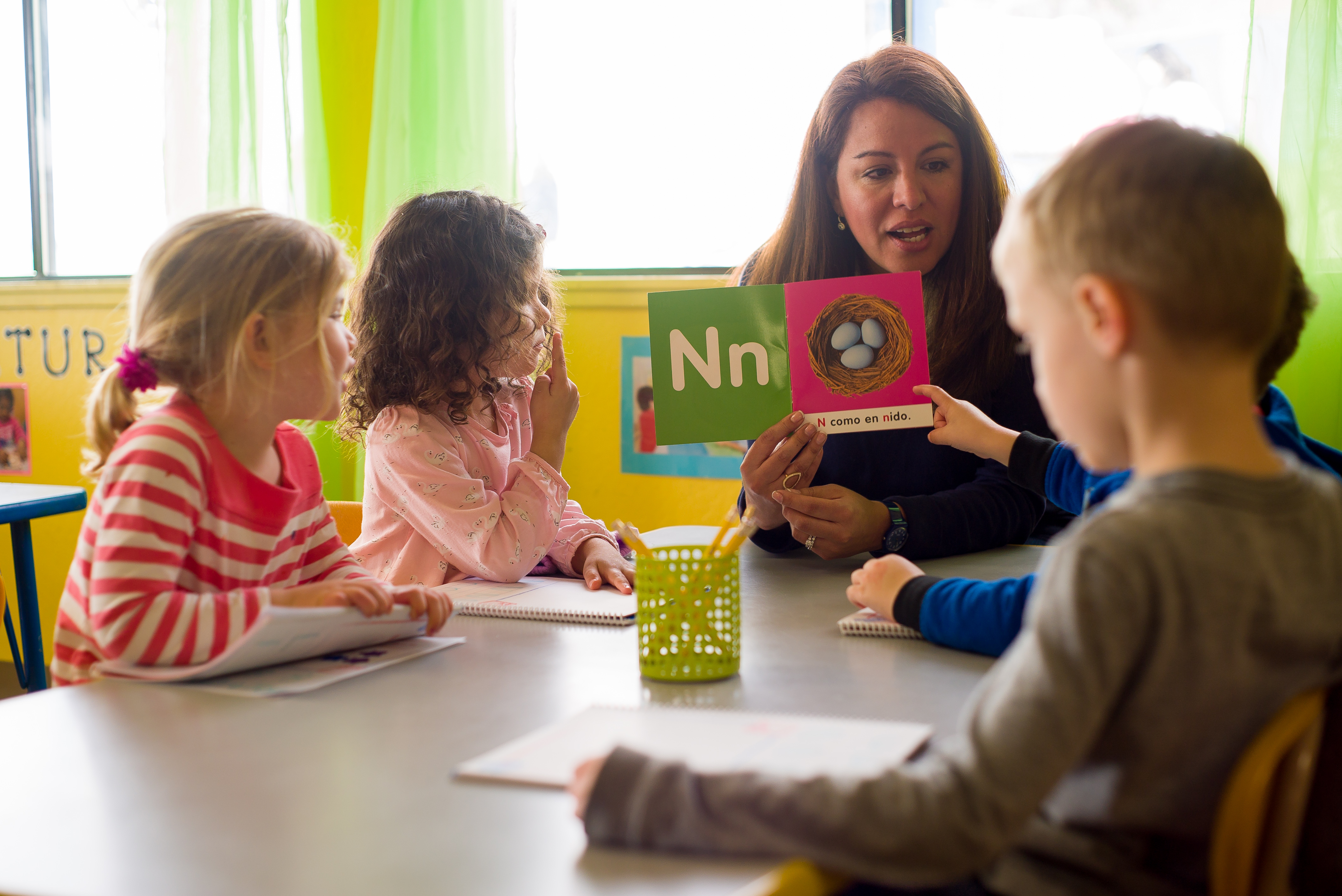Dr. Hind Louali on Recognizing Developmental Milestones for Effective Language Exposure

Prelinguistic Stage (Birth to 6 Months)
During the prelinguistic stage, which spans from birth to approximately six months of age, infants embark on the initial steps of their language development journey.
Infants engage in cooing, producing vowel-like sounds, and babbling, experimenting with repetitive consonant-vowel combinations. These vocalizations serve as early forms of communication and lay the groundwork for future language skills.
Babies begin to exhibit responses to their caregivers’ voices and facial expressions, indicating an awareness of social cues and interactions. This early social engagement plays a crucial role in fostering language development.
Babbling Stage (6 to 9 Months)
As infants progress into the babbling stage, which typically occurs between six and nine months of age, their vocalizations become more varied and purposeful.
Babbling becomes more diverse, incorporating a wider range of consonants and vowels. This experimentation with different sound combinations reflects the growing complexity of the infant’s vocal repertoire.
Babies demonstrate an increasing ability to imitate sounds they hear in their environment. This imitation serves as a fundamental mechanism for learning and refining their vocal skills.
Holophrastic Stage (9 to 18 Months)
The holophrastic stage, spanning from nine to eighteen months of age, is characterized by significant advancements in language development as children begin to use their first words and comprehend simple commands.
Children start using single words to convey complete ideas, such as saying “mama” to express a desire for their mother’s presence or attention. These early words represent an exciting milestone in the child’s language acquisition journey.
Toddlers demonstrate an ability to comprehend basic instructions and commands given by caregivers, indicating an understanding of language beyond mere vocalization.
Two-Word Stage (18 to 24 Months)
Between eighteen and twenty-four months of age, children enter the two-word stage, where they begin to combine words to form simple phrases and express more complex ideas.
Dr. Hind Louali, founder of French School of Austin – Ecole Jean-Jacques Rousseau says toddlers start combining two words to create basic phrases and sentences, such as “more juice” or “big dog.” This expansion of their linguistic repertoire allows for greater expressiveness and communication.
Their vocabulary undergoes rapid expansion during this stage as they continue to absorb and incorporate new words into their growing lexicon.

In the telegraphic stage, which typically occurs between twenty-four and thirty months of age, children progress to using short sentences and further simplifying their grammar.
Children begin to construct short sentences consisting of essential words, such as “Mommy go store” or “Daddy play ball.” These rudimentary sentences represent a significant advancement in their language development journey.
They simplify their grammar usage by omitting less critical words, such as articles and prepositions, focusing on conveying essential meaning and communication.
Multi-Word Stage (30+ Months)
As children enter the multi-word stage, typically beyond thirty months of age, they continue to refine their language skills, constructing more complex sentences and further developing their understanding of grammar.
Kids begin to construct more complex sentences, expressing a wider range of thoughts, feelings, and ideas. This ability to form intricate sentences represents a significant milestone in their language development journey.
They refine their understanding and usage of grammar rules, including verb tenses, plurals, and sentence structure. This ongoing refinement contributes to their linguistic proficiency and communication abilities.
Dr. Hind Louali, founder of French School of Austin – Ecole Jean-Jacques Rousseau emphasizes that it’s important to note that while these milestones provide a general framework for language acquisition, each child develops at their own pace. Variations in individual development are normal and should be expected. If parents have concerns about their child’s speech or language development, consulting with a healthcare professional or speech-language therapist can provide valuable guidance and support.
Language development in early childhood is a dynamic and fascinating process marked by a series of critical milestones that lay the foundation for future linguistic abilities. By understanding and recognizing these stages, parents and caregivers can support and nurture their child’s language development journey, fostering effective communication and expression from an early age.
For more articles on education, music, art, and more from Dr. Hind Louali, visit this blog.




Leave a Reply